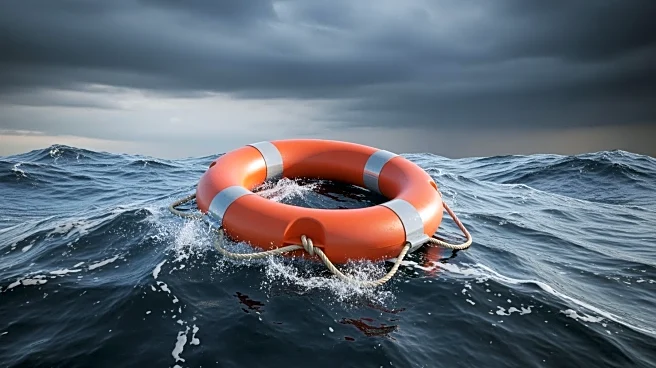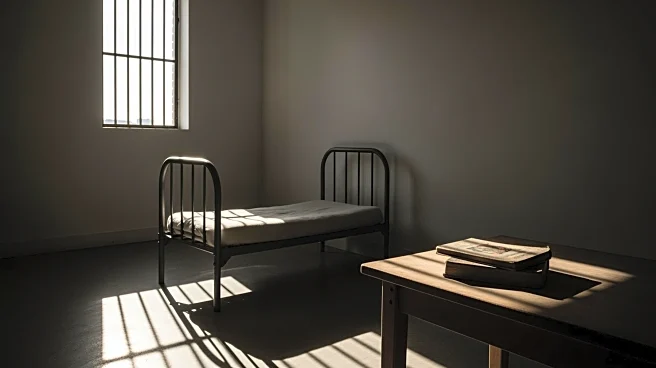What's Happening?
Rescue operations are underway after a migrant boat carrying around 300 people capsized near the Malaysia-Thailand border. Malaysian authorities have recovered the bodies of seven migrants and rescued 13 individuals. The boat, which departed from Buthidaung
in Myanmar's Rakhine state, split into smaller vessels as it neared Malaysia. One of these boats sank near Tarutao island in Thailand, with some victims drifting to Langkawi, Malaysia. The survivors include Rohingya Muslims, who have faced persecution in Myanmar. The Malaysian Maritime Enforcement Agency has expanded the search area and continues to look for more survivors.
Why It's Important?
This incident highlights the ongoing plight of the Rohingya people, who are fleeing violence and persecution in Myanmar. The tragedy underscores the dangerous journeys undertaken by migrants seeking refuge and the need for international intervention. Malaysia, a common destination for Rohingya refugees, faces challenges in managing the influx of migrants. The situation calls for increased international cooperation to address the root causes of migration and to provide safe and legal pathways for refugees.
What's Next?
The search and rescue operations are expected to continue, with the Malaysian Maritime Enforcement Agency expanding the search area. The UN High Commissioner for Refugees has called for regional governments to enhance their efforts in rescuing and protecting migrants. The international community is urged to address the humanitarian crisis and provide support to countries hosting refugees. The fate of the other boats carrying migrants remains uncertain, highlighting the need for coordinated international efforts.
Beyond the Headlines
The incident raises concerns about human trafficking and the exploitation of vulnerable populations. The high cost of passage indicates the desperation and exploitation faced by migrants. The international community must address the legal and ethical dimensions of migration and asylum, ensuring that refugees are treated with dignity and provided with safe and legal pathways to resettlement.
















